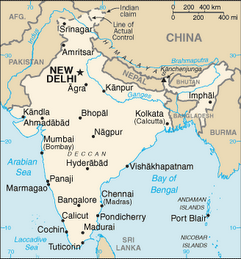
When I reflect on the last 14 days, I've been in 7 cities on 3 continents. Jet lag only begins to explain my state of mind. Our final days in Delhi pre-departure were replete with active days and nights, hot afternoons in CP, Bollywood hits, lunch coffees at Barista, a night of talking Harare politics over Tiger beers with two Zimbabwe friends, and fantastic steak dinner and drinks at Smokehouse Grill in South Ex. Before my departure, and hiatus in California, we organized a feast amongst friends at the apartment, and managed to convince three non-residents to make the trek to Gurgaon. As our conversations moved from the ethics of development to stupid humor, and as my house manager, Kapil, embraced me and apologized for any sins or troubles he had caused me, it only reaffirmed to me that bonds grow strong quickly in new worlds. I dismissed Kapil's appeal with my jocular nickname for him, "Sri Baba Kapil ji," but was moved by the extent to which relationships in India, despite their often disturbing stratification, are genuine, poignant, and resolute.
 After a three-hour delay at the appalling Delhi International Airport (the worst capital city airport I have ever been to, except for perhaps San Salvador) I boarded my FinnAir flight to Helsinki at 4am. Despite months of joy, a few hours in Delhi International can affirm any seeded desire to return home, and leave you counting down the delayed minutes until departure.
After a three-hour delay at the appalling Delhi International Airport (the worst capital city airport I have ever been to, except for perhaps San Salvador) I boarded my FinnAir flight to Helsinki at 4am. Despite months of joy, a few hours in Delhi International can affirm any seeded desire to return home, and leave you counting down the delayed minutes until departure. But when I arrived in Helsinki, Finland, I immediately missed the chaos and color of India. I stepped into fresh, clean, Nordic air under a deep blue sky. Before me new C-class Mercedes passed one after the other as airport taxis, gliding over clean cobbled streets. Although with each breath into my lungs I felt as though I gained strength post-Delhi pollution, and although I could have eaten my lunch directly off the pavement it was so clean, I immediately missed the vibrance of India. I missed the camaraderie that is ubiquitous; I missed the smiles and the bobbles; I missed the momentary entertainment that is a rickshaw negotiation, a languid buffalo, a paan-wala tout, or a carefree shoeless child that protects a makeshift wicket with a stick. India is uniquely complex, and while riddled with problems, it retains an endearing quality that is deeper than the superficial foreign understanding of its squalor and crowds. India is alive.












